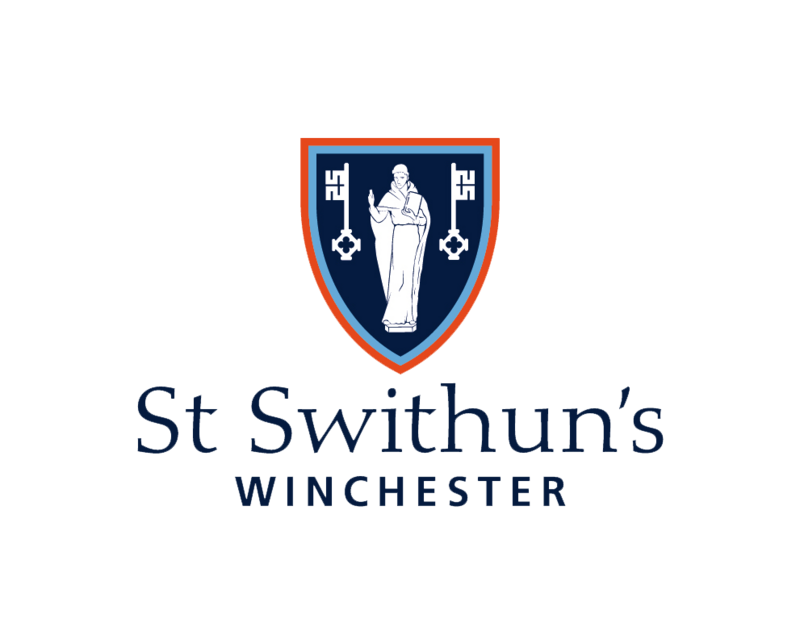
Our A level follows the fine art specialism. This allows for an extremely broad approach, encompassing both traditional as well as new techniques and media. These include painting (watercolour, acrylic and oils), printmaking (monotype, lino, drypoint and screen-printing), sculpture (clay, card, paper wax and mixed-media), photography (silver and digital), film-making (live-action and animation). Underpinning everything is the continuous development of observational skills, with weekly life drawing classes and an emphasis on drawing to express opinion and ideas at all times.
Entry at year 12 is by assessment at St Swithun’s during the first weekend in November of the year before her intended entry. The assessment includes a series of interviews and written papers in your daughter’s chosen A level subjects. The assessments are broadly based on the GCSE specifications except in the case of subjects which have not been studied before: these look for a general interest in the subjects and the ability to write logically.
Component One: Personal Investigation (60% of the total A Level mark) This is a practical portfolio of work with supporting contextual research where clear links are made, in which students develop a personal response based on a theme agreed upon with their teacher. The best themes are those where the student can relate to the idea personally, be that through experience or a desire to discover anew. This will develop into a sustained project, or journey of discovery, which is recorded as it develops, in sketchbooks, experiments, testing and explorations and ensures that each of the four assessment objectives are met. This will lead them to create a finished outcome that realises their intentions. Concurrently the students will develop a supporting written element to this component which is used to clarify and extend ideas and influences. Component Two: Externally Set Task (40% of the total A Level mark) The paper, set by the examination board, will give students a choice of seven themes, starting points, briefs or stimuli. The students choose one option, for which they will generate an appropriate personal response for assessment. Much like Component One, the structure is the same, albeit a shorter project. Students will be given a preparatory period during which they will research, plan and develop ideas for their own response to the option they have chosen. They will then have fifteen hours (split over 3 days) in which to independently complete their work, usually in the form of a significant final piece.
About Education Provider
| Region | South East |
| Local Authority | Hampshire |
| Ofsted Rating | |
| Gender Type | Girls |
| ISI Report | View Report |
| Boarding Fee | �42,651 |
| Sixth Form Fee | �25,356 |
| Address | Alresford Road, Winchester, SO21 1HA |
Our A level follows the fine art specialism. This allows for an extremely broad approach, encompassing both traditional as well as new techniques and media. These include painting (watercolour, acrylic and oils), printmaking (monotype, lino, drypoint and screen-printing), sculpture (clay, card, paper wax and mixed-media), photography (silver and digital), film-making (live-action and animation). Underpinning everything is the continuous development of observational skills, with weekly life drawing classes and an emphasis on drawing to express opinion and ideas at all times.
Entry at year 12 is by assessment at St Swithun’s during the first weekend in November of the year before her intended entry. The assessment includes a series of interviews and written papers in your daughter’s chosen A level subjects. The assessments are broadly based on the GCSE specifications except in the case of subjects which have not been studied before: these look for a general interest in the subjects and the ability to write logically.
Component One: Personal Investigation (60% of the total A Level mark) This is a practical portfolio of work with supporting contextual research where clear links are made, in which students develop a personal response based on a theme agreed upon with their teacher. The best themes are those where the student can relate to the idea personally, be that through experience or a desire to discover anew. This will develop into a sustained project, or journey of discovery, which is recorded as it develops, in sketchbooks, experiments, testing and explorations and ensures that each of the four assessment objectives are met. This will lead them to create a finished outcome that realises their intentions. Concurrently the students will develop a supporting written element to this component which is used to clarify and extend ideas and influences. Component Two: Externally Set Task (40% of the total A Level mark) The paper, set by the examination board, will give students a choice of seven themes, starting points, briefs or stimuli. The students choose one option, for which they will generate an appropriate personal response for assessment. Much like Component One, the structure is the same, albeit a shorter project. Students will be given a preparatory period during which they will research, plan and develop ideas for their own response to the option they have chosen. They will then have fifteen hours (split over 3 days) in which to independently complete their work, usually in the form of a significant final piece.